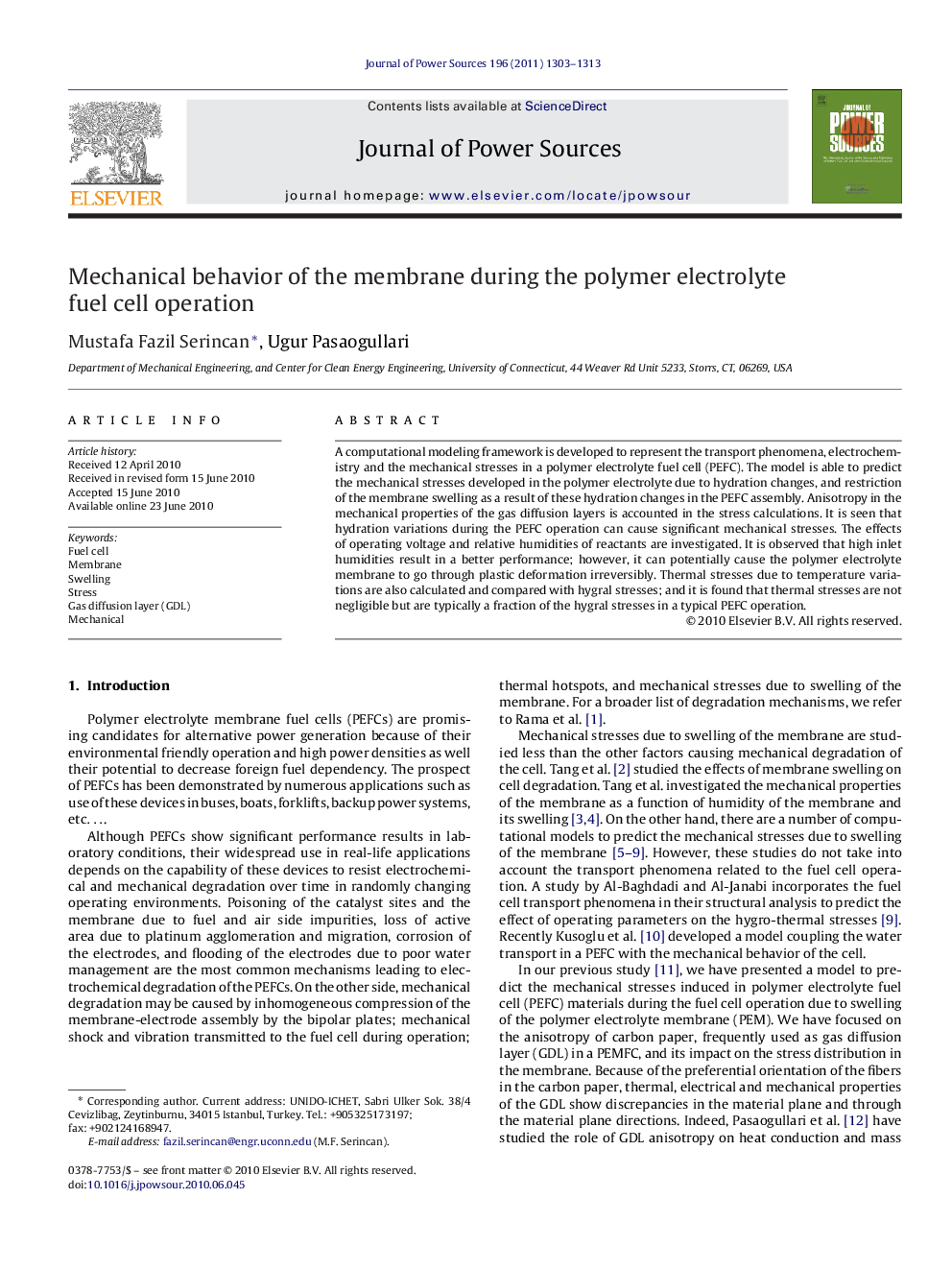| Article ID | Journal | Published Year | Pages | File Type |
|---|---|---|---|---|
| 1289623 | Journal of Power Sources | 2011 | 11 Pages |
A computational modeling framework is developed to represent the transport phenomena, electrochemistry and the mechanical stresses in a polymer electrolyte fuel cell (PEFC). The model is able to predict the mechanical stresses developed in the polymer electrolyte due to hydration changes, and restriction of the membrane swelling as a result of these hydration changes in the PEFC assembly. Anisotropy in the mechanical properties of the gas diffusion layers is accounted in the stress calculations. It is seen that hydration variations during the PEFC operation can cause significant mechanical stresses. The effects of operating voltage and relative humidities of reactants are investigated. It is observed that high inlet humidities result in a better performance; however, it can potentially cause the polymer electrolyte membrane to go through plastic deformation irreversibly. Thermal stresses due to temperature variations are also calculated and compared with hygral stresses; and it is found that thermal stresses are not negligible but are typically a fraction of the hygral stresses in a typical PEFC operation.
